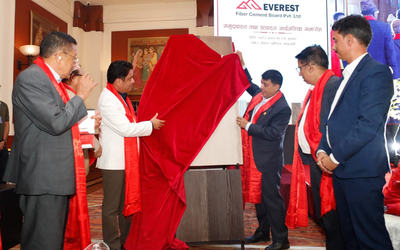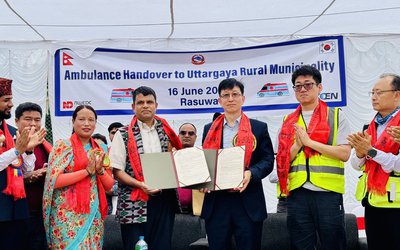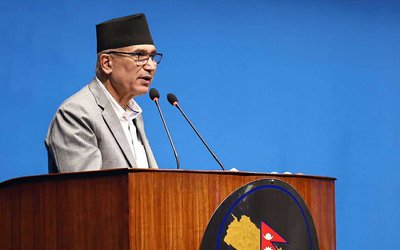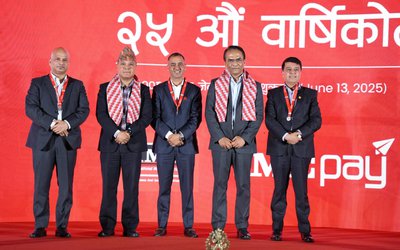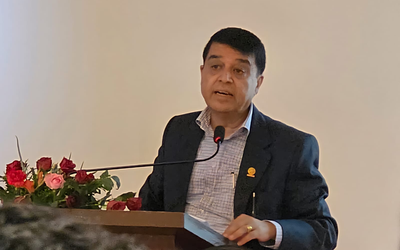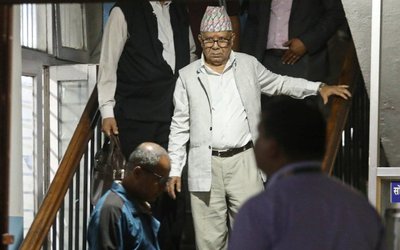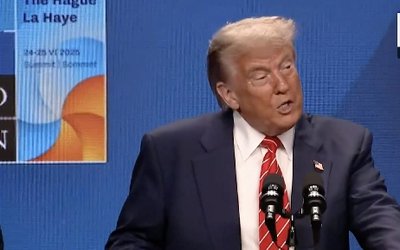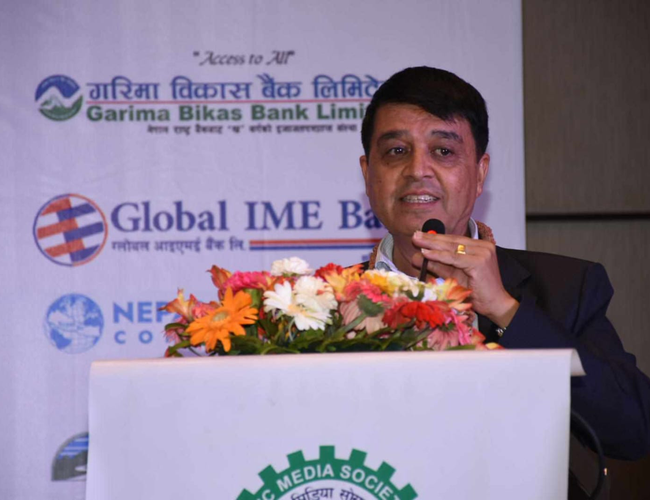
President of the Federation of Nepalese Chambers of Commerce and Industry (FNCCI) and Chairman of Global IME Bank, IME Group, Chandra Prasad Dhakal has said that the budget has included most of the suggestions of the private sector.
Speaking at the 'Budget a Holistic Discourse' organized by the Economic Media Society Nepal (EMSON), he said that most of the suggestions from the private sector have been incorporated in the budget for the upcoming fiscal year 2082/83.
Speaking at the event, he said that the budget has encouraged the private sector as it has come as a 'key driver' for the private sector."We have been making demands not only for our own benefit but also for the improvement of the overall economy," he said while speaking at the program. "The government has made arrangements to encourage the private sector through laws and the budget this time."
While many of the suggestions made by the private sector have been incorporated into the budget, he emphasized that the government must not fail in implementing these suggestions. He mentioned that although the private sector had previously made demands to uplift the overall economy, they were often included in the budget but not implemented accordingly, which led to continuous discouragement within the private sector.
He also noted that the upcoming fiscal year’s budget has made bold moves. “We have long been demanding that Nepal’s mineral resources should be allowed for export, and we are encouraged that this has been included in the budget,” he said. “We had been demanding a system where minerals could be exported after completing all necessary industrial procedures, and since it has now been included, it should not face delays in implementation.”
Referring to petroleum products considered as valuable mineral resources in the Middle East, he said that if those countries had kept their resources unprocessed and underground, they would not have reached their current economic state. In the same way, he emphasized that Nepal should not hesitate to export its mineral resources for economic development. He added that other demands from the private sector, such as easing rent in Special Economic Zones (SEZs) and constructing international convention halls, have also been addressed through the budget.
While speaking at the event, he acknowledged that although many suggestions from the private sector were included, some were not. He pointed out that issues like Power Purchase Agreements (PPAs) in hydropower and the “take or pay” model included in the budget would create complications for the private sector. These could pose difficulties in attracting foreign investors and in securing financing from banks, he noted.
He said that some facilitation would surely result from the removal of the foreign currency threshold for hotels in border areas, aimed at promoting the tourism sector. This move has brought enthusiasm to the tourism industry as well.
Although many points in the budget are positive, he warned that implementation failures have historically caused problems. Citing the example of the Dhaubadi iron mine, he said that while it is mentioned in every budget, the lack of implementation has disappointed both investors and citizens.
He remarked that the “take or pay” provision gives the impression that the private sector might be barred from trading electricity, which would cause issues in the hydropower sector. He concluded by saying that only if the budget is properly implemented and good governance is ensured, can the directives of the budget be fulfilled—and only then will achieving the targeted 6% economic growth be possible.
- Former PM Nepal finally released from the special court after paying a bail of Rs 3.5 million
- Jun 26, 2025
- Weather Forecast: Partly To Generally Cloudy With Windstorm In Few Places Of Terai Region of Koshi And Madhesh
- Jun 26, 2025
- IME Group Launched Nepal’s First Fiber Cement Board Industry with Its Investment
- Jun 25, 2025
- Distribution of Land Ownership Certificates in Lamahi Municipality with Korea's Support
- Jun 25, 2025
- Weather Forecast: Partly To Generally Cloudy With Very Heavy Rain Is Likely To Occur In Few Places In Koshi And Sudurpaschim Provinces
- Jun 25, 2025
